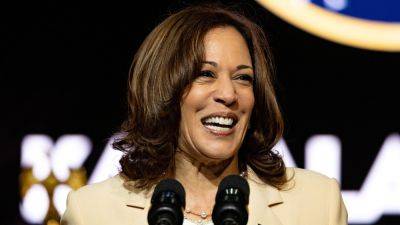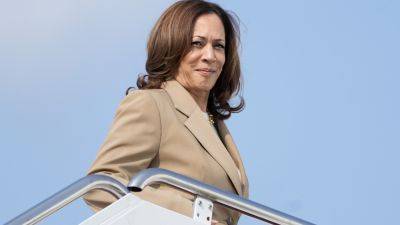Can Harris Win Back Arab American Voters? The Door May Be Cracked Open.
In Muna Jondy’s family, every topic is fair game on the WhatsApp thread.
The 40-person chat, which includes Ms. Jondy’s brothers, sisters, nieces and nephews, discusses everything: the Drake and Kendrick Lamar rivalry, Ohio State-Michigan football superiority and, of course, politics.
The discussion of President Biden’s re-election campaign was a common theme this year as the administration’s support for Israel in the war in Gaza alienated many Muslim and Arab American families, including the Jondys.
But the mood shifted when Mr. Biden dropped out of the race and Vice President Kamala Harris became the presumptive Democratic nominee. The family took notice last week when Ms. Harris said she would not look away from images of dead children or be silent about the tragedies in Gaza.
“Am I crazy or is this way more than Biden ever was willing to say?” Ms. Jondy’s niece messaged the group. Others in the chat were more skeptical: “Would be nice, but unless I see an explicit change in policy I won’t believe it.”
The WhatsApp chat is typical of the conversations happening among Arab Americans across the country who turned away from Mr. Biden over the war in Gaza, which has killed more than 36,000 people over the past 10 months. In crucial battleground states like Michigan, where Ms. Jondy’s family lives, many people who voted for Mr. Biden in 2020 said they felt betrayed and joined protest movements that challenged his campaign.
Ms. Harris may have an opportunity to change the conversation. While she has not strayed from Mr. Biden on Israel policy since she began her own campaign for the presidency, she has struck a stronger tone on the suffering of Palestinians.







